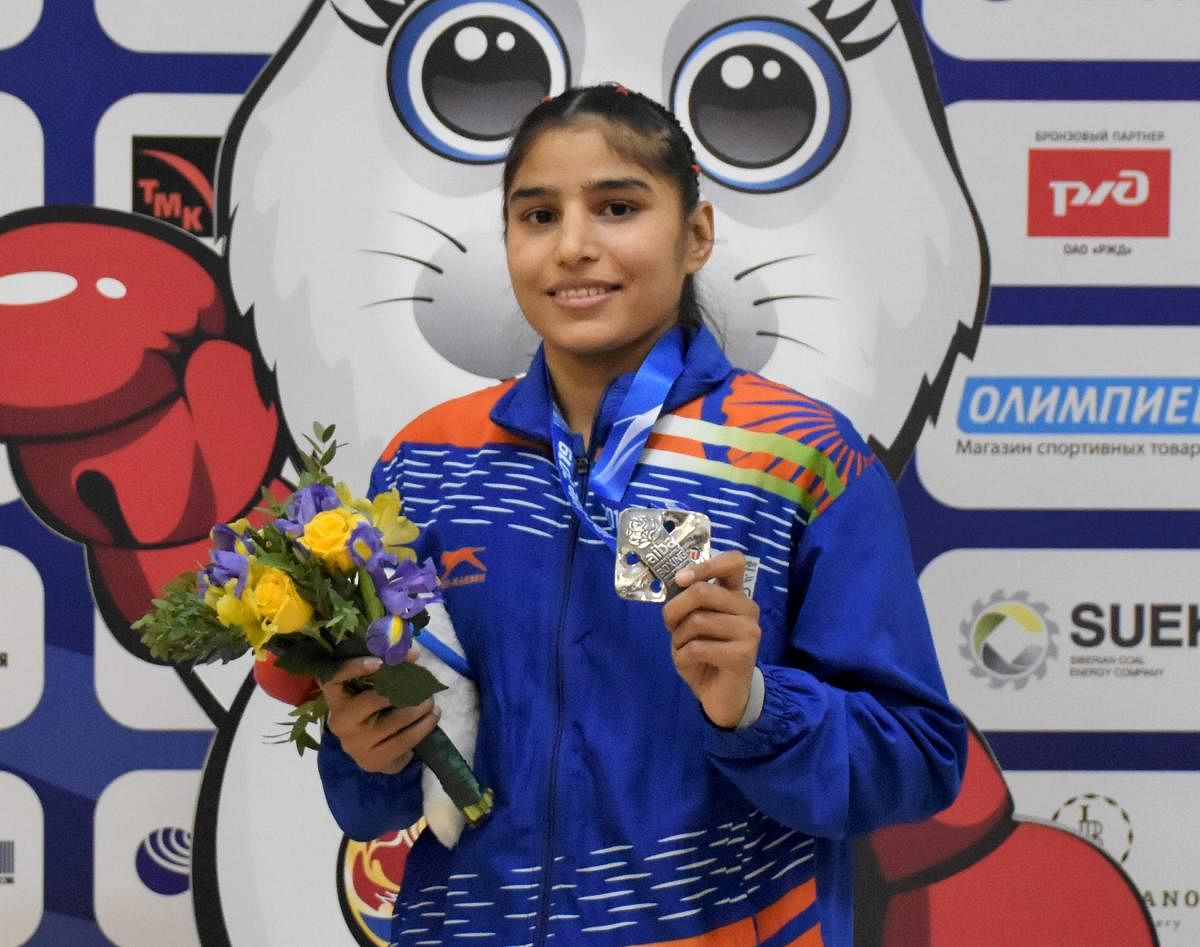
“Woh jeetne ke liye banni thi (she was born to win),” senior coach Sahab Singh proudly tells about his ward Manju Rani. Barely 20, the Indian pugilist has indeed come out victorious from many a battle that life has thrown at her from a young age.
Inside the ring, the recently held Women’s World Championships in Ulan-Ude in Russia was undoubtedly Manju’s biggest challenge. Not surprisingly, India pinned hopes on six-time champion Mary Kom. However, grabbing the spotlight from the veteran was Manju whose red-hot run in the 48kg category was halted only in the final by local lass Ekaterina Paltceva as the Haryana girl clinched a silver to sign off as India’s best performer at the meet.
Those who have followed Manju’s journey at the Worlds wouldn’t have missed the smile with which she walked into the arena. Minutes before her bouts, she oozed confidence that you seldom see from a boxer competing in his/ her maiden Worlds. Manju’s mental toughness is a result of years of hardships she went through while she strived to fulfill her dream of representing India.
In 2010, Manju’s family plunged into grief when her father Bhimsen Sharma, a havaldar in BSF, lost his battle with liver cancer. In the lowly Rithal village of Rohtak district, not many can withstand the jolt of losing the sole bread-winner of a family of seven. But Ishwanti Devi and her five children weren’t the ones to give up despite the hardships.
“My husband’s pension of Rs 9000 wasn’t obviously enough to handle our expenses," recalls Ishwanti. "So I opened a small cosmetic shop in the hope of getting some financial stability. I had decided my kids would go to school but expenditures were tough to take care of. I could only afford used textbooks that were available at cheap rates. My children never complained.”
Even as she prioritised education for her kids, Ishwanti knew there was a sporting talent in her family that needed attention. When Manju began to show interest in boxing, Ishwanti was willing to go any lengths to make her daughter successful.
“Everything related to sports is expensive. I had to find extra money for Manju’s boxing gears and her dietary requirements. When I felt helpless, I borrowed money from people in my village to provide her basic facilities,” she recollects.
Manju’s mature response to the adversity was of big help, feels Ishwanti. Today, her daughter is the pride of the village but Ishwanti confesses that she would never want to go back to those days of deep struggles.
“Manju was careful with her spending. Even if it was Rs 10, she would return it to me after she had purchased whatever she needed to. When it came to boxing gears, she would adjust with items of passable quality. Brand didn’t matter to her. She was a boxer with immense grit and passion,” Ishwanti tells of her daughter.
The timely intervention of Sahab, her father’s friend, gave a ray of hope to Manju. For Manju, Sahab wasn’t just a coach. He was a father-figure who helped her survive a huge mental turmoil. Poor form and lack of opportunities in Haryana dented Manju’s morale. With her career going nowhere, the youngster was on the verge of quitting the sport. Sahab’s decision to have Manju represent Punjab produced a remarkable turnaround, in just a span of 10 months.
“In the five-year period of 2013-18, I didn’t win many medals. I didn’t get too many chances either. When I felt like giving up boxing, Sahab sir motivated me and kept telling me that a medal is around the corner. Last year, I won the senior national gold for Punjab and that was the start of many positive things,” she says.
Her nationals triumph helped Manju gain a place in the World Championship squad. After suffering many setbacks to reach this stage, Manju wasn’t going to squander this big opportunity.
Manju looks to build on from her first big medal. “I had promised my mother that I will return with a medal. It was a proud feeling to have ‘India’ written on my jersey. I got a tough draw but it taught me a lot of lessons. Now I want to work hard to qualify for 2024 Olympics,” she says.